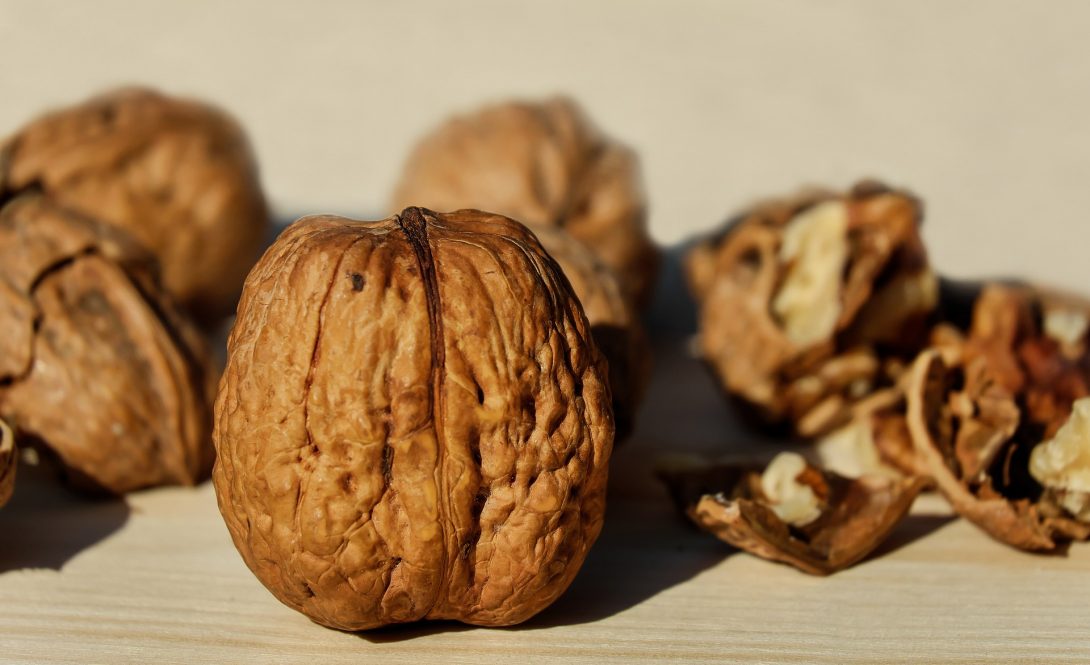What we eat has a huge impact on our health. Certain foods contain important nutrients that can help decrease the risk of certain diseases.
UConn Health Professor of Medicine Daniel W. Rosenberg is investigating if walnuts can reduce a person’s risk for colorectal cancer and why some people may derive a greater benefit than others. This work is supported by a $3.5M grant from the National Institutes of Health.
Rosenberg will be collaborating with Drs. John Birk in the Gastroenterology and Hepatology Division at UConn Health and George Weinstock at the Jackson Laboratory for Genomic Medicine.
Walnuts contain an exceptionally high amount of a micronutrient called polyphenolic ellagitannins. Bacteria in the gut convert ellagitannins into the urolithins, a complex group of polyphenolic metabolites. One of the key urolithins, urolithin A (UroA), has strong anti-cancer and anti-inflammatory properties.
However, if, and how much, UroA an individual can produce varies significantly. This is likely due to differences in a person’s resident gut microbiota. Only specific species of bacteria can metabolize the ellagitannins and deciphering the basis to this specificity is one of the goals of this grant application.
Rosenberg’s study will substantiate the anti-cancer benefits of eating walnuts and determine the basis for why UroA forms differently, or not at all, in different people.
Rosenberg hypothesizes that walnut consumption will reduce an individual’s risk for developing colonic polyps. These sometimes pre-cancerous lesions are caused in part by inflammation and can be related to family history, diet and other lifestyle choices.
Rosenberg will measure UroA levels in participant’s urine. He suspects an increase in these levels will be associated with a decrease in colorectal cancer risk factors among those participants who can effectively produce large amounts of UroA.
Rosenberg will use known factors associated with colorectal cancer risk, such as family history and personal history of advanced polyps to screen individuals. Rosenberg and his team will then associate the presence of inflammatory markers in the blood and colon tissues with an individual’s ability to produce UroA.
Rosenberg will also test participants’ gut microbiota to identify the species responsible for metabolizing ellagitannins and the urolithins. He will then use genetic colon cancer models in his laboratory to demonstrate the role that specific microbiota play in producing UroA and how that ability may alter an individual’s cancer risk profile.
This work will potentially prove the protective effects of walnuts and other ET-rich foods. It also promises to add to scientific understanding of how these foods guard against colorectal cancer risk and who can benefit from them.
This knowledge can help practitioners develop personalized nutrition plans for patients most at risk for colorectal cancer. If one of these patients is a UroA producer, they can likely increase their protection by eating foods like walnuts.
Other people, who are currently non-producers for UroA, may also be able to benefit from consuming ET-rich foods by taking probiotics which will enable their bodies to process ETs and produce UroA. That is a long-term goal of this work.
Rosenberg holds a Ph.D. from the University of Michigan in toxicology and environmental health sciences. He is the HealthNet Inc Endowed Chair in Cancer Biology and an investigator in the Center for Molecular Oncology. His lab focuses on the molecular events that accompany early gastrointestinal neoplasia.



